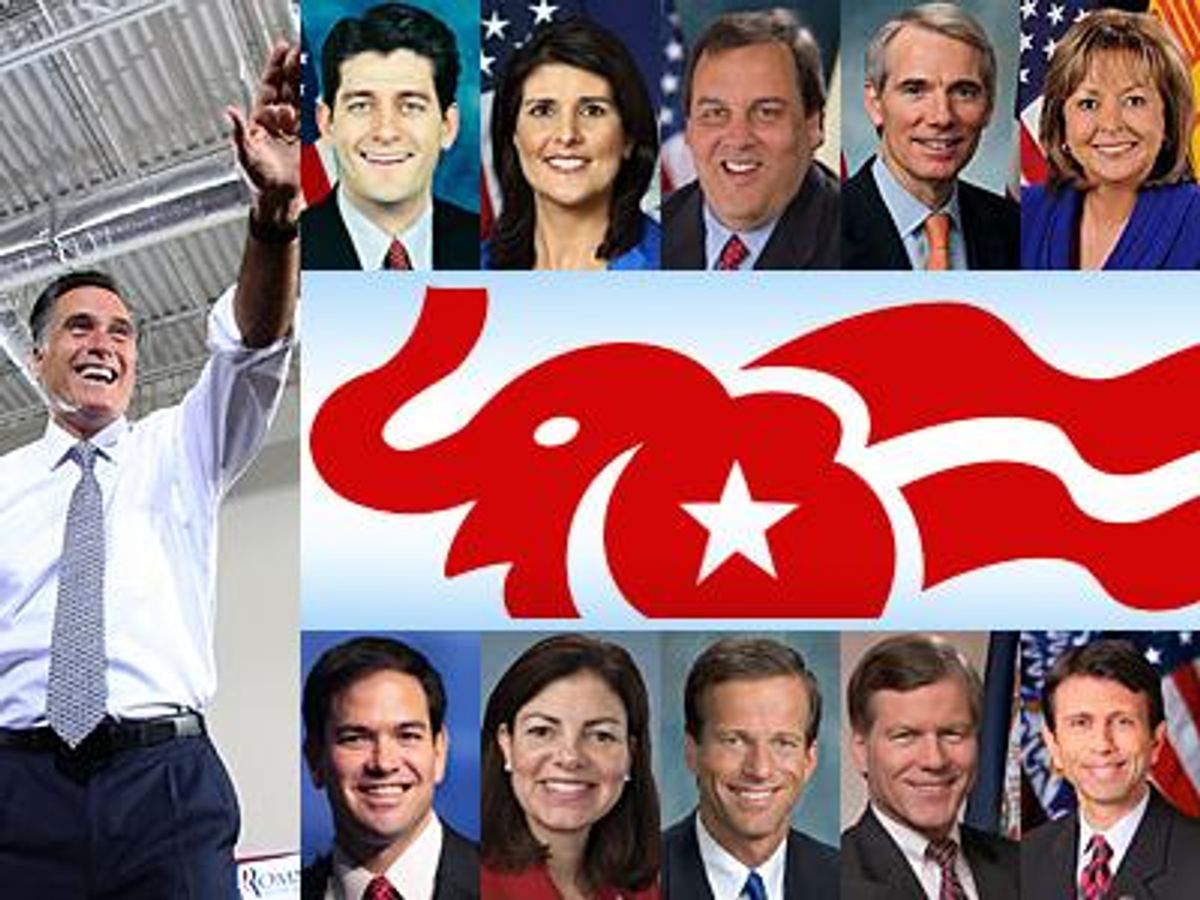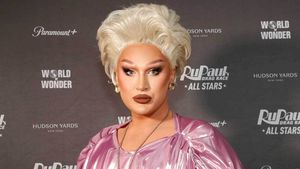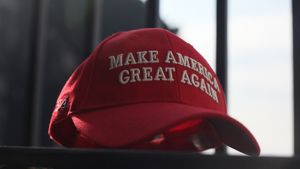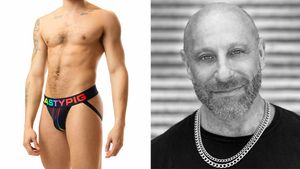Although normally voters decide based on the first name on a ticket, sometimes choosing the right running mate can make or break an entire presidential campaign. Just ask John McCain.
Now that Mitt Romney is the presumed Republican nominee, his team is carefully vetting its short list of running mates to determine which political figure voters will most want to see paired with the former Massachusetts governor. Meanwhile, the American Civil Liberties Union has assembled a list of its own: possible running mates and their records on LGBT issues.
"Governor Romney's pick might end up a heartbeat from the presidency, but they'll be light years from civil liberties," said Anthony D. Romero, executive director of the ACLU. "We hope Governor Romney flips his Etch-a-Sketch and picks someone who more strongly supports our constitutional values."
Whoever is selected will debate Vice President Biden, who vocally supports marraige equality, in the fall.
We've added to the ACLU's research on the following pages. Check out the list.

Kelly Ayotte, U.S. senator from New Hampshire
- Although New Hampshire now permits same-sex marriage, Ayotte opposes it and supports repeal of the marriage equality law. A Republican repeal effort failed in the state earlier this year.
- She and Romney both support the Defense of Marriage Act. "I do not think we should overturn DOMA," Ayotte said during a 2010 debate, "because it's absolutely for states to decide marriage."
- In the 2010 Christian Coalition survey, Ayotte indicated her support for a constitutional amendment banning same-sex marriage across the country. Romney also supports the amendment.

Chris Christie, governor of New Jersey
- In early 2012, Christie vetoed a bill that would legalize same-sex marriage, stipulating that the issue "should be left to the people of New Jersey to decide." His call for a statewide referndum was decried by activists who said civil rights should never be put up to a majority vote.
- Although the governor opposes same-sex marriage, he has stressed that same-sex couples in a civil union, which are legal in his state, "deserve the very same rights and benefits enjoyed by married couples." Romney no longer supports civil unions, although he once floated the idea as an alternative when his state was ordered by the courts to permit same-sex marriage.
- Christie is widely praised for passing one the nation's most rigorous antibullying laws.
- When a teacher in his state made antigay comments on Facebook, he was quick to condemn her words as "disturbing" and called for an examination of her behavior in the classroom.

Nikki Haley, governor of South Carolina
- As a member of the South Carolina House of Representatives, Haley voted for a 2007 state constitutional amendment that defined marriage as a union between one man and one woman.
- In a 2010 interview, she reiterated, "Marriage is between one man and one woman."

Bobby Jindal, governor of Louisiana
- As a member of the U.S. House of Representatives, Jindal voted to approve the failed Federal Marriage Amendment in 2006.
- In 2008 he refused to reissue an executive order that banned antigay discrimination by state agencies and contractors: "The reason for allowing the order to lapse is that I don't think it is necessary to create additional special categories or special rights." (Although Romney said in 1994 that he would vote to approve the Employment Non-Discrimination Act, he has since said it's unnecessary because it would "open a litigation floodgate and unfairly penalize employers at the hands of activist judges.")
- Later that year Jindal formed the Louisiana Commission on Marriage and Family, which included representatives of organizations opposing marriage equality.

Susana Martinez, governor of New Mexico
- A Tea Party favorite, the New Mexico governor opposes same-sex marriage.
- In early 2012 her gay hairstylist made headlines by refusing service until she supported marriage equality. Her position remains unchanged.

Bob McDonnell, governor of Virginia
- As a Virginia legislator, McDonnell coauthored a 2007 constitutional amendment defining marriage as a union between one man and one woman.
- In 2010 he signed a bill into law that allows companies to offer health insurance to same-sex partners of employees (but only after the Virginia General Assembly had approved the measure with unanimous votes).
- In 2012, McDonnell signed another bill into law: one that permits faith-based adoption centers and foster care agencies to discriminate against gay parents: "Most of the data that I've read [is] that the best environment for a child to grow up to be fully capable of achieving the American dream and having the best start at life is an intact two-parent family made up of a man and a woman." (Although Romney once implied he might support the right of same-sex couples to adopt, he made his opposition clear shortly after and has many times bragged about siding with the Catholic Church in Massachusetts on its desire to discriminate in adoptions and foster care.)

Tim Pawlenty, former governor of Minnesota
- In 1993 the newly elected member of the Minnesota House of Representatives supported a bill protecting LGBT people from discrimination in employment, education, and housing. However, when running for governor, Pawlenty expressed regret for the vote and favored its repeal: "I said I regretted the vote later because it included things like cross-dressing, and a variety of behaviors that weren't based on sexual orientation, just a preference for the way they dressed or behaved. So it was overly broad. If you are a third-grade teacher and you are a man and you show up on Monday as Mr. Johnson and you show up on Tuesday as Mrs. Johnson, that is a little confusing to kids."|
- During his time in the Minnesota legislature, Pawlenty coauthored a state Defense of Marriage Act defining marriage as solely a union between a man and a woman: "I support a state and federal amendment to the constitutions defining amendments as such."

Rob Portman, U.S. senator from Ohio
- In 2004, Portman voted in favor of the failed Federal Marriage Amendment.
- In 1999 he voted to ban adoptions by same-sex couples in Washington, D.C. (The city has significant federal oversight.)
- On the Christian Coalition survey, the senator indicated he would support a Federal Marriage Amendment preventing same-sex marriage.
- He voted for DOMA in 1996.

Condoleezza Rice, former U.S. Secretary of State
- On the AmericansElect.org email questionnaire, Rice selected this following response to the social issues question: "Same-sex couples should be allowed to marry legally, with all the same rights as traditional marriages."
- When asked about same-sex marriage by Christianity Today in 2010, Rice replied, "I don't ever want anybody to be denied rights within this country. I happen to think marriage is between a man and a woman. But perhaps we will decide that there needs to be some way for people to express their desire to live together through civil union."

Marco Rubio, U.S. senator from Florida
- Rubio supports DOMA.
- "The debate [over same-sex marriage] is about what society should tolerate," Rubio said, explaining why he doesn't agree with President Obama's support for marriage equality.

Paul Davis Ryan, U.S. representative for Wisconsin's first congressional district
- In 2003, Ryan voted in favor of the Marriage Protection Act -- legislation that would have prevented federal courts from considering and possibly overturning the Defense of Marriage Act.
- He voted in support of the failed Federal Marriage Amendment in 2004 and 2006.
- In 2011 he voted against repealing "don't ask, don't tell."
- "I support the Wisconsin amendment to define marriage between a man and a woman," Ryan said in February.
- He voted in favor of the 2007 Employment Non-Discrimination Act, which would prohibit workplace discrimination based on sexual orientation.

John Randolph Thune, U.S. senator from South Dakota
- In 1999, Thune voted to ban adoptions by same-sex couples in D.C.
- In 2008 he cosponsored the Federal Marriage Amendment, which defined marriage exclusively as the union between a man and a woman.
- He voted against repeal of "don't ask, don't tell."





























































































